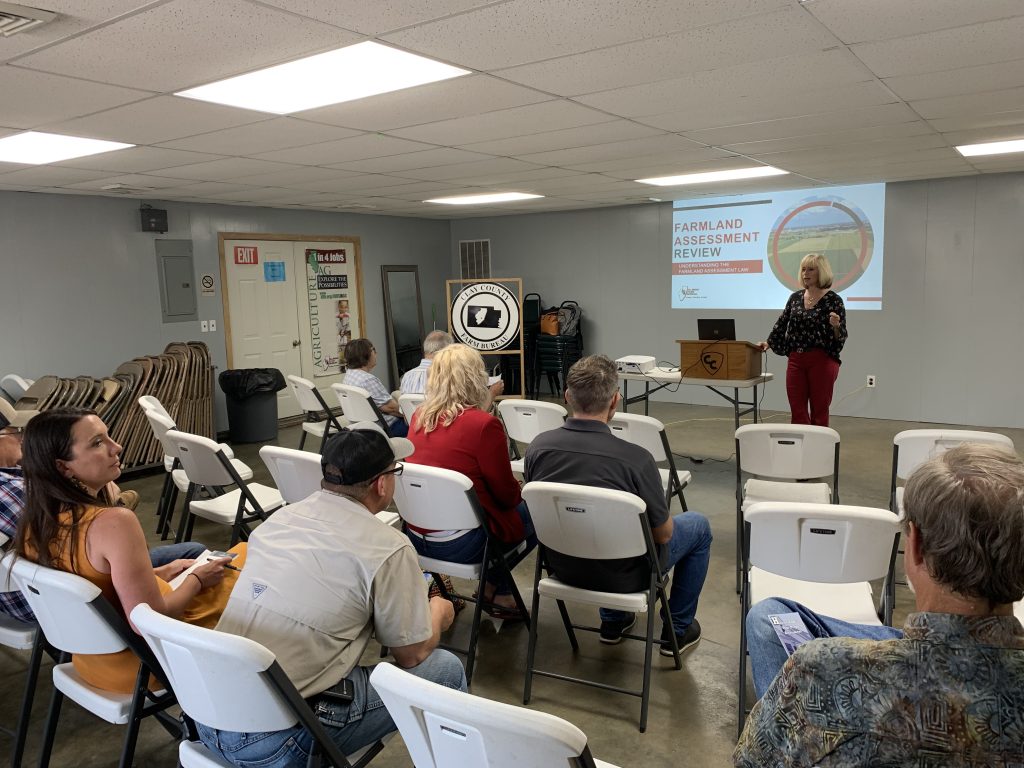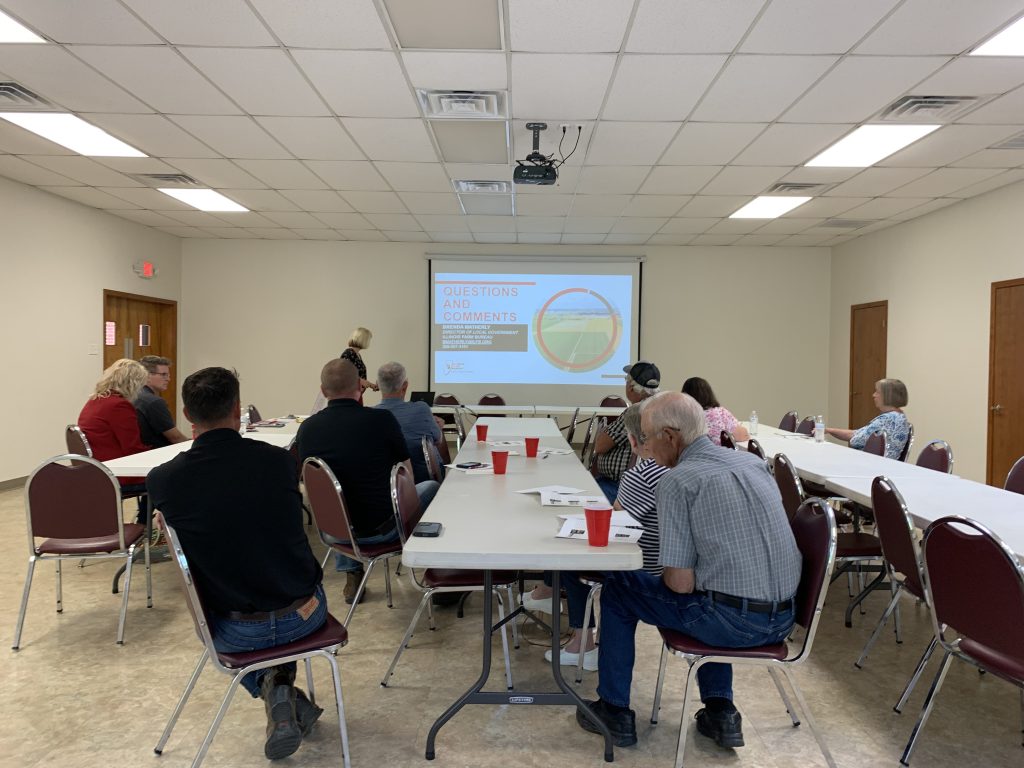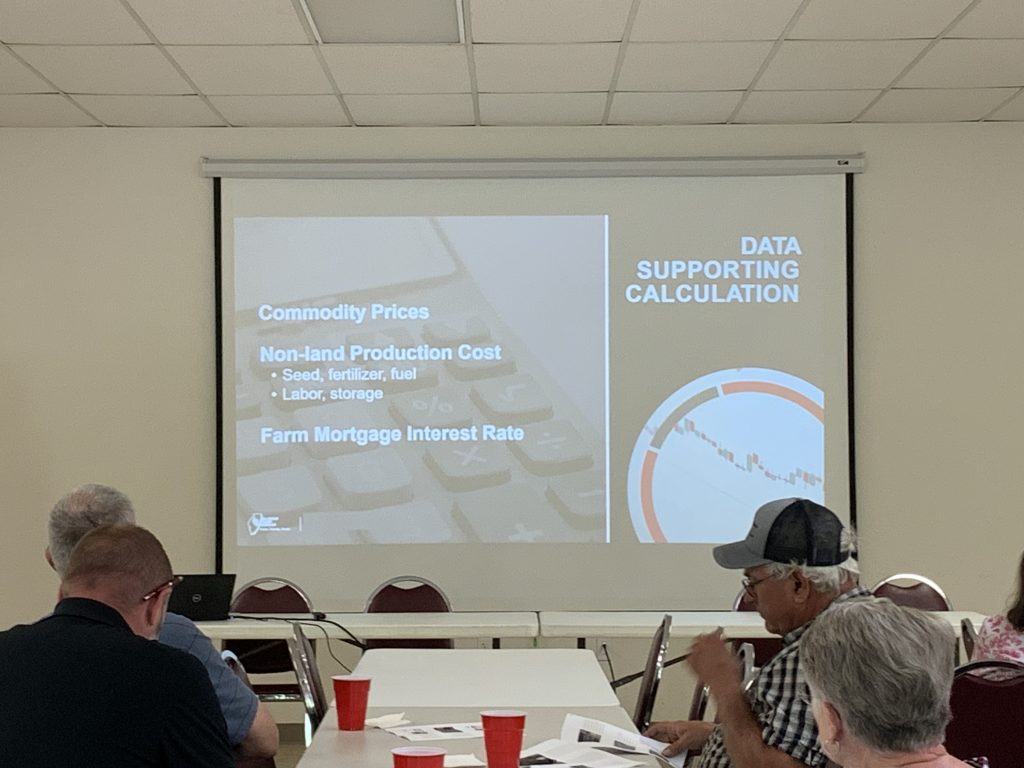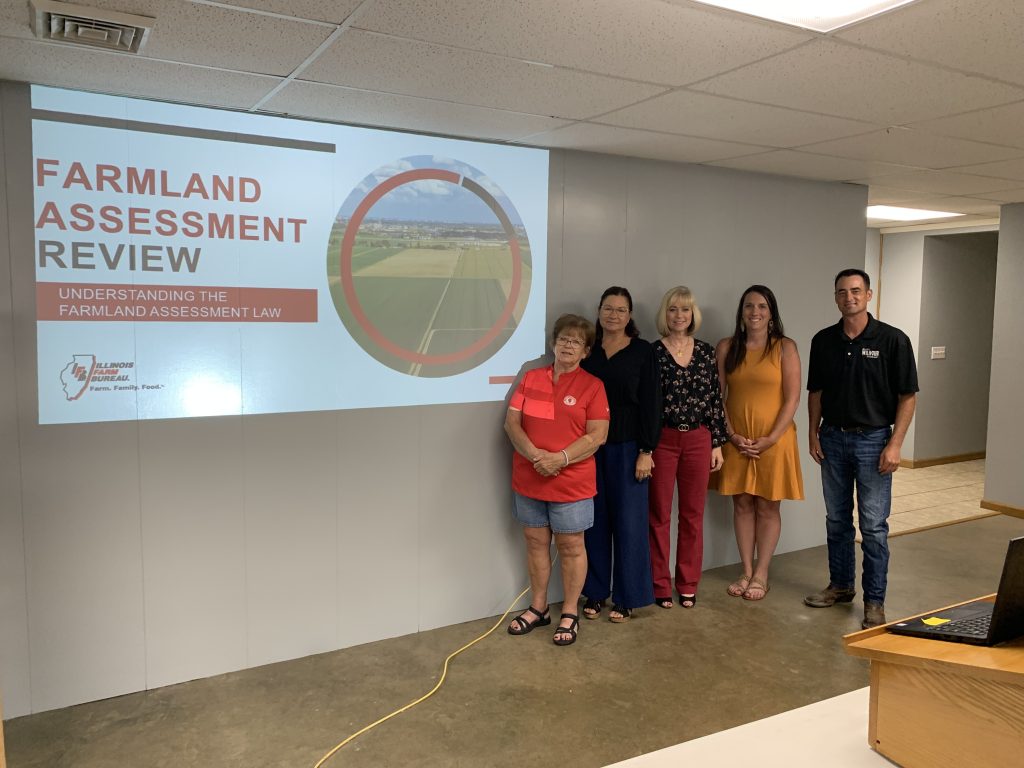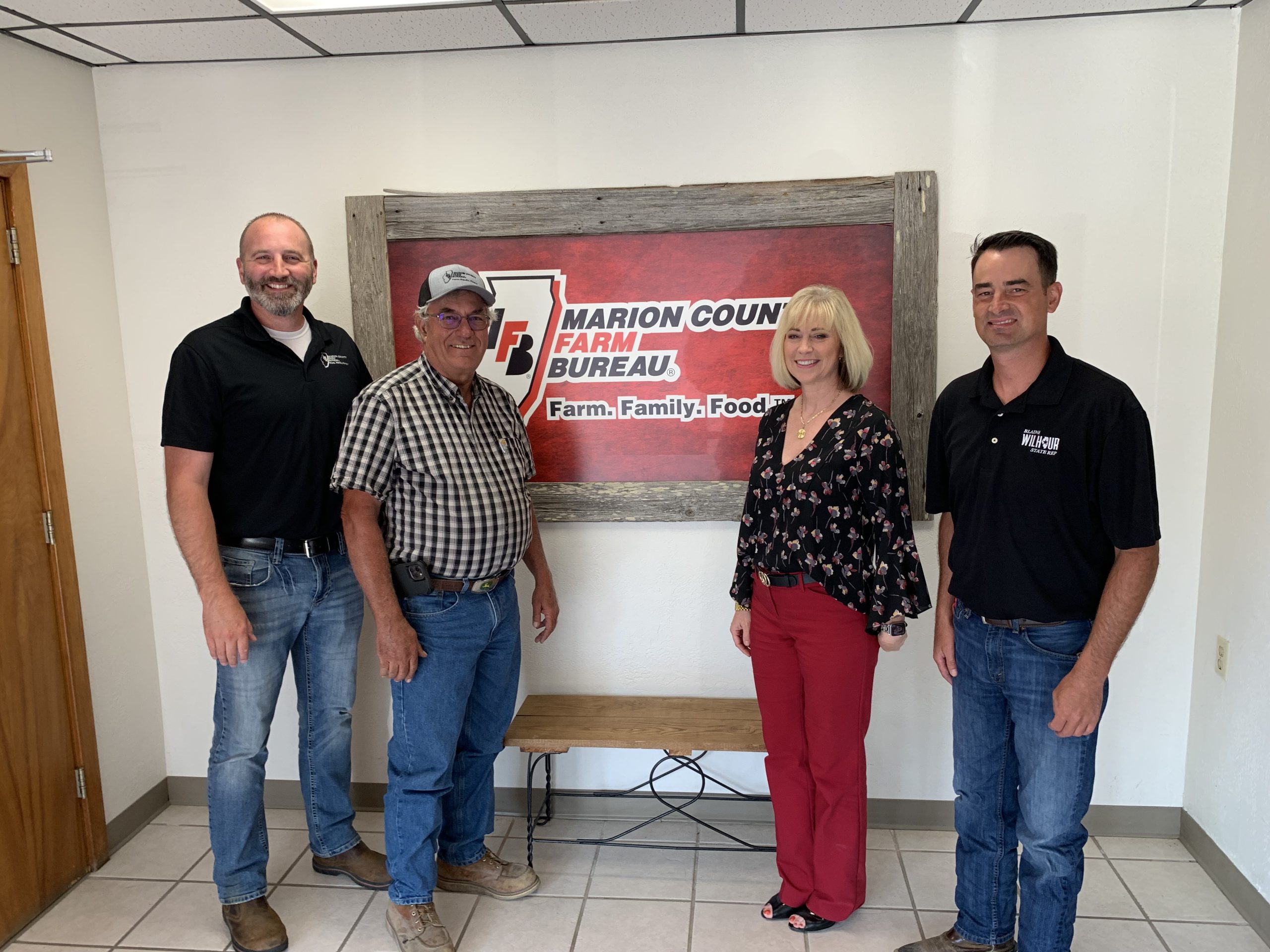State Representative Blaine Wilhour sponsored two regional seminars on “Farmland Assessment” for farmers and landowners to learn about how the valuation process works in Illinois for calculating the assessed value of farmland. Conducted by the Director of Local Government, Brenda Matherly of the Illinois Farm Bureau, the hour-long presentation covered the history of the property tax in Illinois, the approach to setting values, Farmland Assessment Law, and what to expect in the next several years on assessing.
The first seminar was held on Thursday in Louisville and hosted by the Clay County Farm Bureau. Farmers from Effingham, Jasper and Richland Counties were invited to also attend this regional event. The second seminar was hosted by the Marion County Farm Bureau in Salem with farmers invited from Bond, Clinton, Fayette, and Montgomery Counties.
“Thank you to the Illinois Farm Bureau for conducting this educational seminar for our local farmers to learn how the assessing process works specifically for farmland in Illinois,” said Rep. Wilhour. “I would say everyone who attended learned something about how agricultural land is valued, how there is a 10 percent limit right now either upwards or downwards in the Equalized Assessed Value (EAV) for an acre, and that there is a ranking of soil quality from 82 to 130 in Illinois.”
Attendees were able to learn about the assessing process that is established by state law and administered through the state Department of Revenue. From 1818 to 1930, property taxes were calculated on 100 percent of the value of land, but that was lowered to 55 percent of value in the 1930’s, 50 percent of value in 1970, and finally down to 33.33 percent of land value starting in 1975.
“Understanding the assessment process is just one part of the property tax equation and determining what portion of the local levy will ultimately show up on the property bill,” added Rep. Wilhour.
